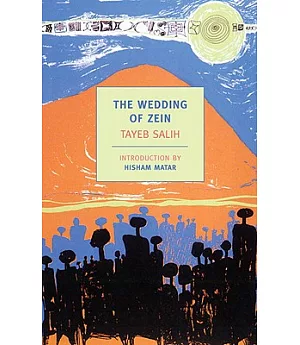The Wedding of Zein takes place in the same village on the upper Nile where Tayeb Salih’s Season of Migration to the North is largely set, but here the story that emerges through
the overlapping, sometimes contradictory voices of the villagers is comic and redemptive rather than tragic. Everyone in the village is dumbfounded when the news goes around that Zein is
getting married—Zein the freak, Zein who no sooner than he was born burst into laughter and has kept women and children laughing ever since, Zein who lost all his teeth at six and whose face is
completely hairless, Zein who never wears shoes and does not trim his nails. Zein married at last? Zein’s role in the village is not to get married himself but to fall in love with girls who
then marry someone else. The story of how this miracle came to be is a story that engages the tensions that exist in the village, or indeed in any community—tensions between the devout and the
profane, the poor and the propertied, the modern and the traditional—and as it plays out in Salih’s agile hands it reveals a prospect, absurd and yet wonderful and certainly wonderfully
entertaining, of their ultimate reconciliation—a mythical, utopian vision from the deep past or the ideal future of the world made whole.
Salih’s classic novella appears with two of his finest short stories, “The Doum Tree of Wad Hamid” and “A Handful of Dates.”





















